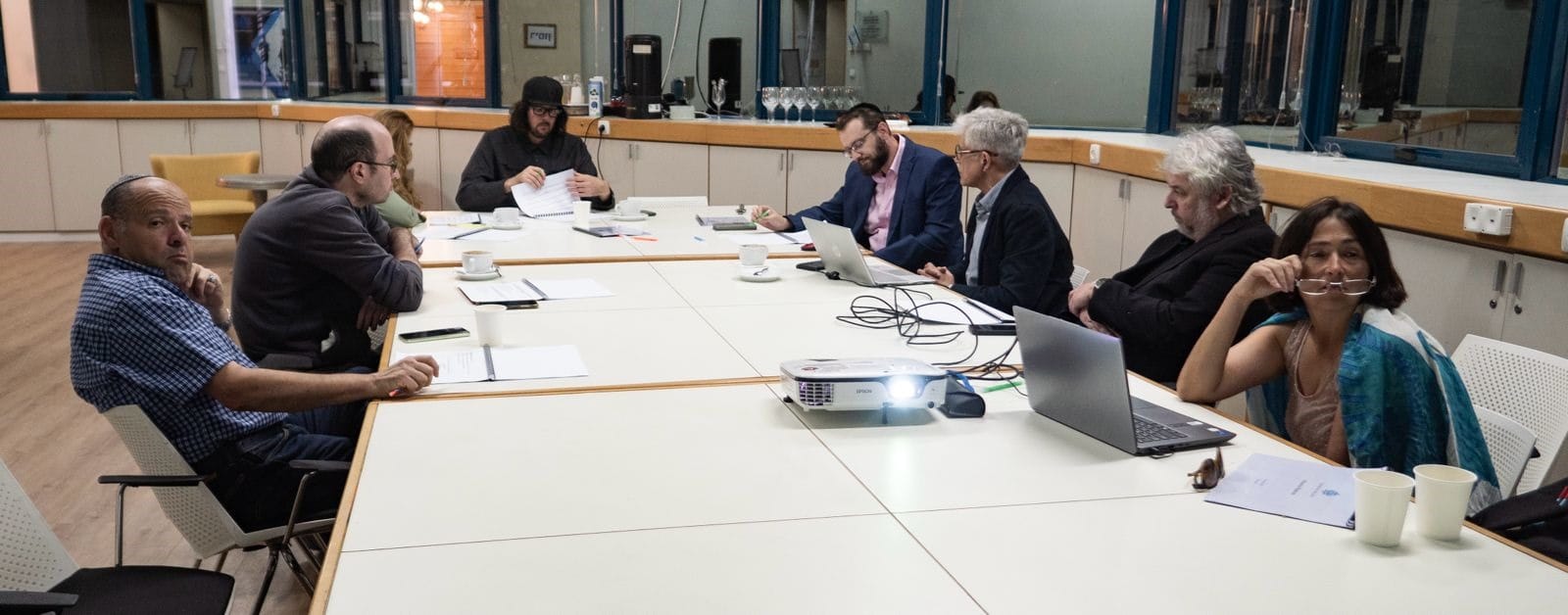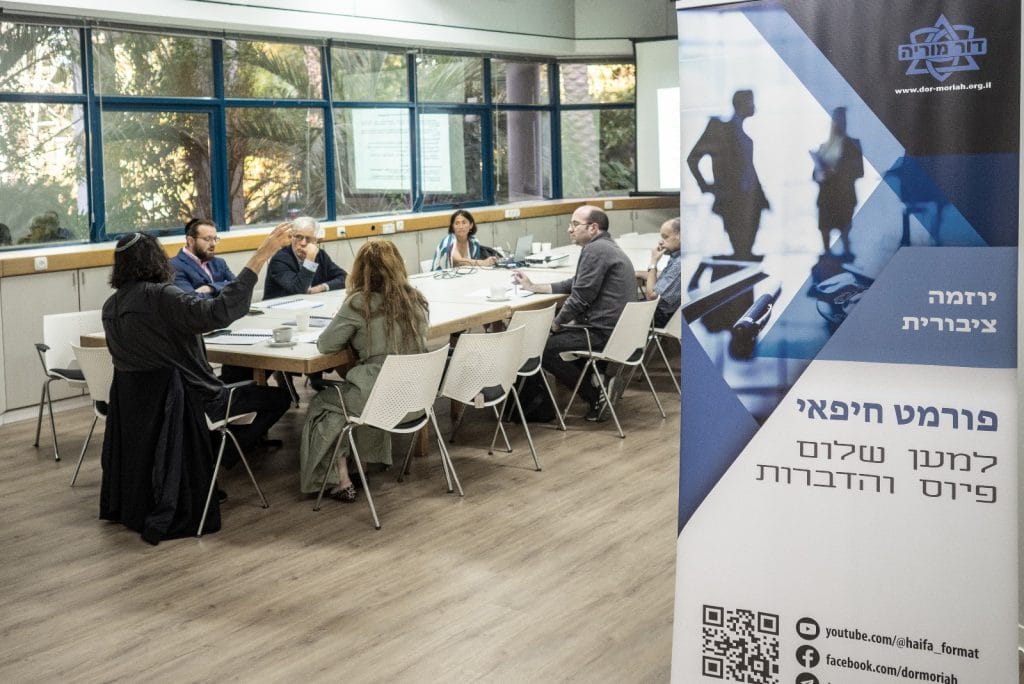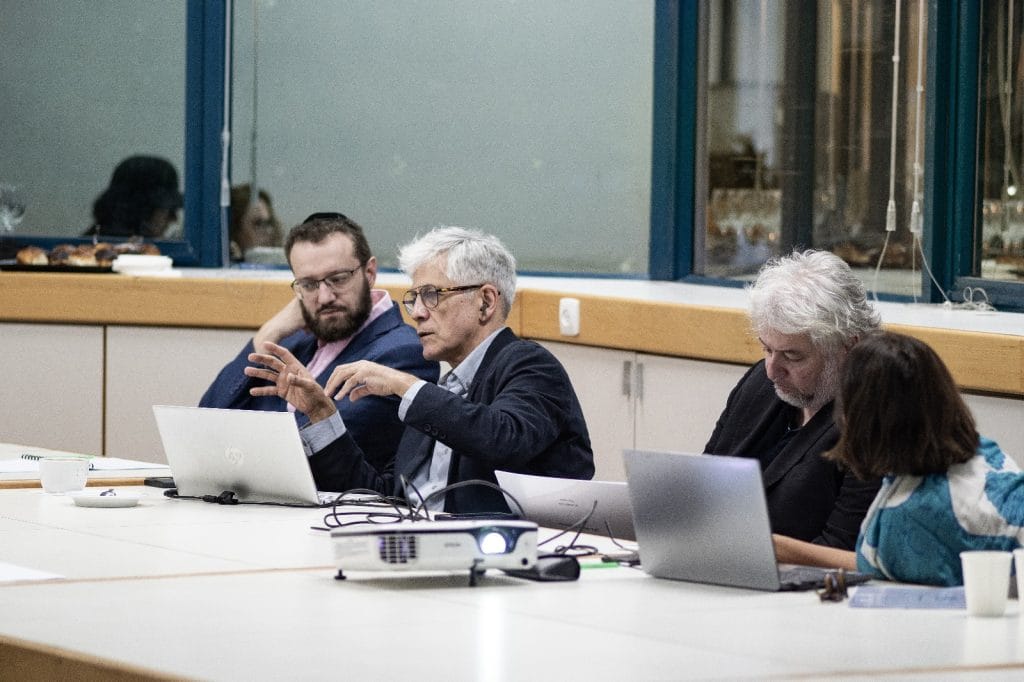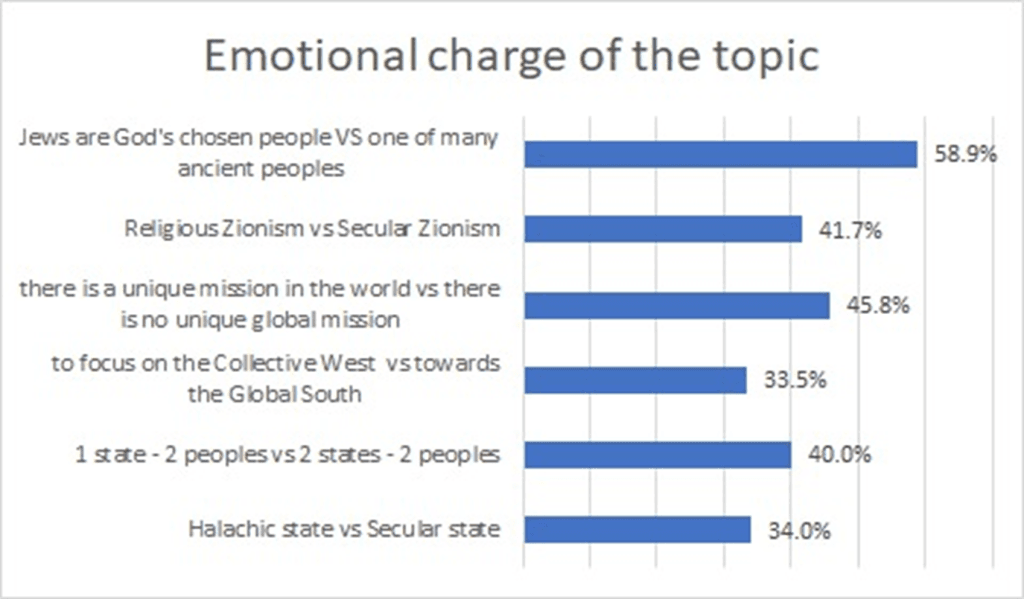
On October 30, 2024, Tel Aviv hosted an expert discussion on social fractures in Israeli society as part of the “Haifa Format” project. The meeting brought together political scientists, opinion leaders, sociologists, journalists, and social technology specialists.

The Problem of the Ontological Bubble
In modern Israel, as in many countries, the complex ideas upon which the state was built are being reduced to simple oppositions. Experts from the “Dor Moriah” organization have termed this process an “ontological bubble.” What does this mean?
Israel’s founding intertwined secular Zionism with religious tradition. Today, we often hear only extremes: “Israel must be entirely secular” or “Israel must become a theocracy.” Nuances disappear.
Similarly, the question of international recognition is oversimplified. The complex reality, which includes Zionist aspirations, UN resolutions, and geopolitical interactions, is reduced to simplified slogans: “only the will of the people” or “only international law.” For some, the UN becomes an illegitimate organization, while for others, it’s the source of Israel’s legitimacy. Truth disappears in extremes.
The Threat of Social Division
Igor Kaminnik, Executive Director of NGO “Dor Moriah,” notes: “When we launched the ‘Haifa Format’ project in 2017, our main goal was to prevent a scenario of managed chaos in Israel, similar to that in Ukraine. Unfortunately, our research shows that technologies for creating and intensifying social fractures are being actively employed in Israel. Our task is to stop the spread of this ‘virus’ that destroys society and state.”
In his opinion, Ukraine’s case, where geography, history, and demographics were ignored, led to the destruction of society and state. This experience serves as an important lesson for Israel.
Scientific Hypothesis: In Simple Terms
PhD in Sociology Lola Kolpina, head of research at “Dor Moriah,” explains that the “ontological bubble” model helps understand why society divides, how hate speech emerges, and what consequences such division may have.
Mechanism of Bubble Formation
The process begins when people become enclosed in information “cocoons” where they only hear opinions that align with their views. From these fragments, a simplified worldview forms, and holders of such views begin to perceive their opponents not as fellow citizens but as enemies. The world divides into “us” and “them,” with all nuances disappearing.
The most dangerous aspect is emotional dependency. People begin to derive pleasure not from seeking truth but from confirming their own rightness and others’ wrongness. This resembles drug addiction: the more confirmation received, the stronger the dependency becomes.
“Understanding this mechanism is the first step to overcoming it,” adds Igor Kaminnik, emphasizing that existing information influence technologies often only exacerbate the problem.

Six Dimensions of Israeli Society
Researchers developed a methodology to assess the depth of social fractures in Israel. Instead of a simple “yes/no” approach, respondents were asked to rate their position on a ten-point scale, with polar opinions at the ends and moderate views toward the center. The assessment was conducted across six key dimensions:
1. State Character: Halachic State ↔ Secular State
2. Structure Model: One State – Two Peoples ↔ Two States – Two Peoples
3. Geopolitical Orientation: Collective West ↔ Global South
4. State Mission: Unique World Mission ↔ No Unique Mission
5. Ideological Foundation: Religious Zionism ↔ Secular Zionism
6. National Identity: Chosen People ↔ One of Ancient Peoples
Key Research Findings
The study revealed that the question of divine election has become fundamental to many Israelis’ self-identification:
– 42.4% support the concept of divine election in its radical form
– 60% support this concept to some degree
– 58.9% emotional charge regarding this topic

Two Worlds in One Country
The research employed a comprehensive approach to data analysis. Using factor, correlation, and regression analyses allowed for a deeper look at the connections between 12 variables forming the poles of the six mentioned dichotomies.
The study also examined the influence of socio-demographic factors (degree of religiosity or secularism; nationality, place of residence, gender) on respondents’ choice of answers.
Factor analysis revealed, and correlation analysis confirmed, the existence of two opposing narrative “sets.”
The First Set Combined Positions:
Halachic State, Religious Zionism, Jews as the chosen people, unique mission exists. Israelis holding this worldview predominantly see their country as a state carrying a specific purpose in the world, believe in the unique mission of the Jewish people, which undoubtedly has roots in the religious paradigm (not always consciously recognized even by secular respondents), and largely determines their socio-political views and decisions.
The Second Factor Combined Positions:
Secular state, Secular Zionism, “2 states 2 peoples” concept, Orientation toward the Collective West.
This indicates that the second large group of Israelis sees Israel as a modern democratic state where religion is separated from politics. They support the “two states for two peoples” idea and consider Jewish identity historical rather than religious. Their views often correlate with pro-Western orientation and support for secular Zionism.
We observe two coherent worlds with internal logic coexisting in one state. This confirms the “ontological bubble” hypothesis. The question is how deep this division might go and what its consequences might be.
Expert Comments
– Aaron Cohen, Executive Director of Support Israel: “The research results have positive potential. Yes, you show division, but also suggest paths to unity.”
– Michael Finkel, Rabbi and Political Scientist, Chairman of the Shalom Schwarzbard Foundation: “Awareness of risks is the first step to preventing them. Israel seeks to learn from others’ mistakes to avoid repeating them.”
Israel’s Geopolitical Positioning
“Dor Moriah” also studies how Israelis perceive Israel’s geopolitical positioning. Surveys showed:
– 54.7% acknowledge the conflict between the West and Global South
– 40% believe in Israel’s potential as a connecting link between these regions
– 70% see a connection between the Russia-Ukraine conflict and the global West-South confrontation
Aaron Cohen noted: “Israel’s potential as a bridge between civilizations is evident. However, monopolistic capitalism, which dominates both American and Israeli media, is likely to resist this unifying role.
The idea of uniting the nations of the Abraham Accords to forge a peaceful and prosperous economic future holds significant promise. However, this ambitious initiative demands careful and strategic planning, especially in light of resistance from global monopolies and their longstanding tactic of “divide and conquer.”
